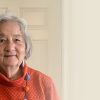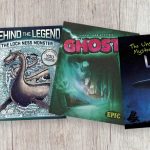Books can serve as mirrors for readers who are looking for authentic reflections of their own experiences. In Good Different (Scholastic, 2023)—Meg Eden Kuyatt’s debut novel-in-verse—the book also served as a mirror for the author, who learned while writing the story that she is on the autism spectrum just as her character Selah discovers the same thing. Kuyatt’s genuine, heartfelt, and affirming book tells the story of Selah’s seventh-grade year, when the rules around her all seem to change, and the “normal-person mask” she’s worked so hard to create for herself starts to slip and reveal the real Selah. And as the number of honors, starred reviews, “best book list” inclusions, and enthusiastic reader reviews indicate, Selah’s story resonates not just with readers searching for mirrors, but also for those searching for insights, empathy, and a compelling read.
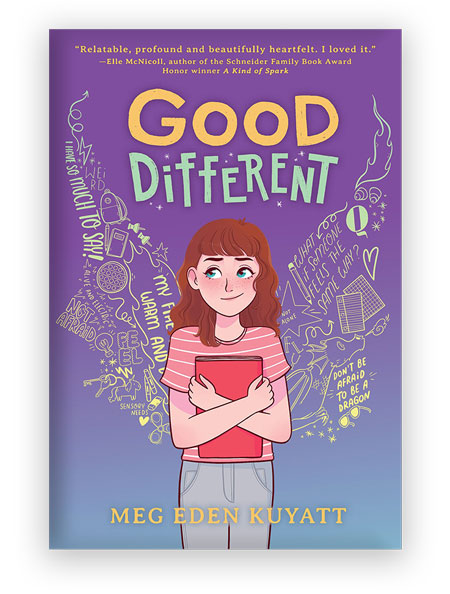
Here, Kuyatt talks about some of her own feelings about “being neurodivergent in a neurotypical world,” reader responses to Good Different, and the impact of video games on her writing.
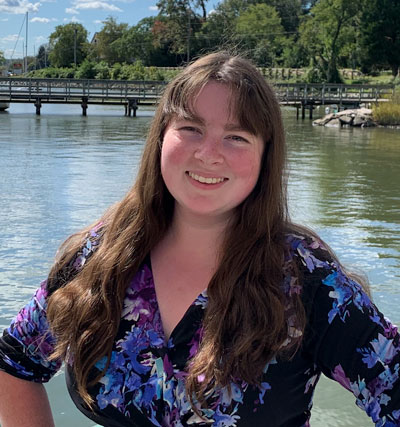
You’re very candid about your own experience being diagnosed with autism. Was it liberating to create a fictional character who shares some of those experiences with you?
Very liberating. I’m a bad liar! I’ve tried to write protagonists unlike me, and it never goes well. Our best material is what we know. It was very healing, particularly to write Selah, as I discovered my diagnosis alongside her. I started out by writing what I experienced and felt, and I thought it might be autism, but I only sought out a formal diagnosis as I wrote Selah’s story and realized both of us wanted to know what our brains needed. I think that’s why Selah’s story is so important to me.
Why was it vital to you to share Selah’s story with young readers?
As a kid, I didn’t realize I could ask for help. I didn’t have to just put up with everything that caused me sensory pain and exhaustion. I didn’t know there were tools that could help me. I want kids now to know these resources are out there, and that there’s no shame in being different and having different needs. Already, I’m hearing about so many kids saying they feel seen by Selah. That they have autism diagnoses now that are helping them navigate the world more effectively. That thrills my heart!
As a kid, I didn’t realize I could ask for help. … I want kids now to know these resources are out there, and that there’s no shame in being different and having different needs.”
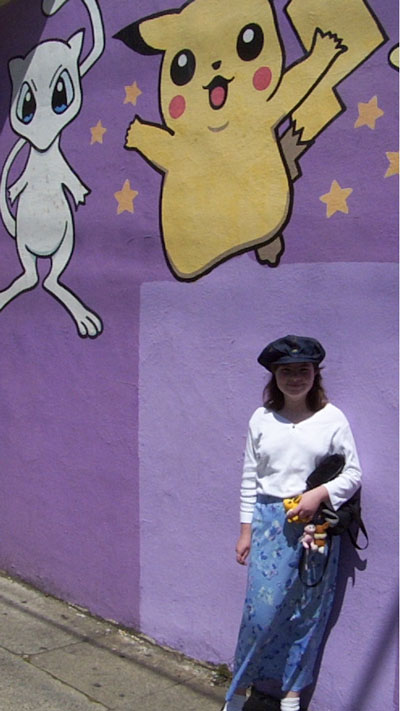
What is the primary thing you wish you understood when you were Selah’s age?
That I have autonomy. That I’m allowed to ask for things I need (also, I would’ve loved the awareness to identify what I needed, or that I needed help!). Even in college, it didn’t even occur to me to ask my roommate to turn her light off at night. I was sure that then I’d be rude and start a conflict. But instead, my silence did! These tools and skills aren’t just about helping an individual navigate the world, but also about helping to develop and sustain healthy relationships through empathy and communication.
How did you come to write Good Different as a novel-in-verse?
Selah’s story just popped out in poems! We come to poetry when prose is inadequate, when the content can only be in verse. There’s a saying in musical theater that the characters sing when the emotion’s too strong for spoken word; they dance when the emotion’s too strong for music. Poetry is like that. The emotion is so strong that it comes out organically in poetry. And my feelings about being neurodivergent in a neurotypical world, and all the exhaustion and overstimulation and confusion of not being able to keep up—those are too big for prose.
I’ve also found that verse helps readers who are different than Selah better understand an autistic perspective. Verse allows us to more viscerally feel what Selah’s feeling, and that feeling helps create empathy in readers. So, my hope is that the verse especially helps neurotypical readers increase their empathy and understanding of different autistic experiences.
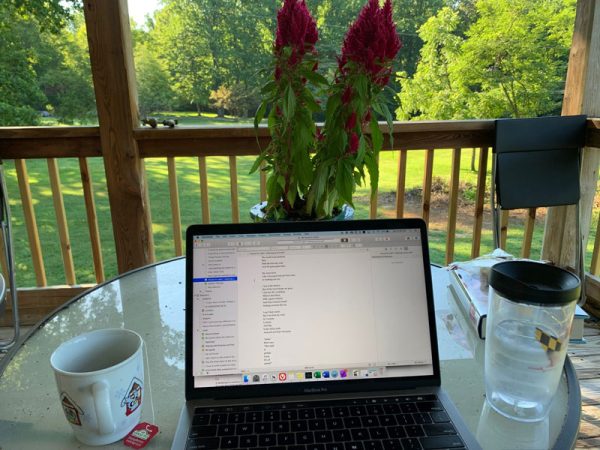
You’re also the author of several poetry books, and your character Selah finds her voice through writing poetry. Do you think of yourself as a “poet first”?
I think of myself straddling poetry and fiction! In fiction workshops, I’d be told “this should be a poem.” And in poetry workshops, “this should be a story.” Novels-in-verse are a wonderful merging of what I love about verse and narrative. I think my poetic eye for aha moments, as well as my narrative tendencies, come up in everything I write, because we write about what excites and interests us. I love that poetry is about discovery and exploration. Poetry’s the way I slow down and process the world around me. It’s a powerful tool for an autistic person!
I love that poetry is about discovery and exploration. Poetry’s the way I slow down and process the world around me. It’s a powerful tool for an autistic person!”
What did you find most satisfying about writing this novel-in-verse? What did you find most challenging?
The most satisfying part of this experience: seeing that I’ve effectively communicated an aspect of my autistic experience. In the past I’ve been told my autistic protagonists are “unlikable” or “hard to relate to.” So, I’m very happy Selah resonates with readers. The most challenging part of this experience: that first draft. First drafts are terrifying! I remember sitting down each day to write this, having no idea what I’d write next, and screaming like I was on a roller coaster. It was so scary, but it gets easier with time.
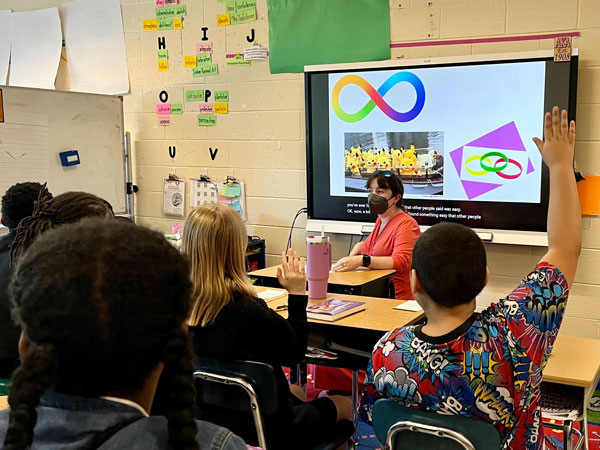
What is your favorite part of writing for young people?
It’s probably the part that at first was scariest to me—becoming a kid again! Young Meg is still alive in me and still hurts with kid-hurt. Writing is a way to not only reach out and encourage kids now, but it’s a way I can learn and grow and work toward healing, too.
What do you wish people—including parents, educators, and neurotypical students—better understood about autism?
It’s much more prevalent than you think and it isn’t limited to white boys who like math and/or trains. Even people who on the outside look like they’re doing fine may be struggling. Sometimes the ones who seem the most “fine”—the ones who are complacent and compliant—might be struggling the most. Ask questions and be kind. Do not assume “there is no such thing as ‘can’t.’” It’s quite possible that a kid has a limitation that needs to be respected.
Even people who on the outside look like they’re doing fine may be struggling. Sometimes the ones who seem the most ‘fine’—the ones who are complacent and compliant—might be struggling the most.”
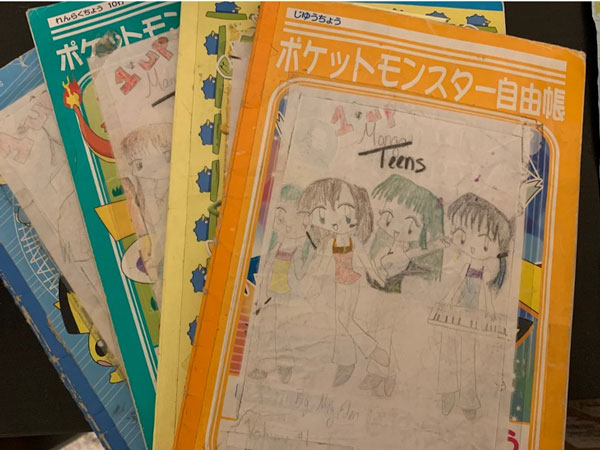
I was moved to see that some readers took the time to respond to Good Different by framing their reviews in the same poetic form as the story itself. What kind of impact does it have on you to see readers engaging so deeply with your work?
I literally cannot emotionally comprehend how this story is connecting with others. I am so beyond blown away and so encouraged in a selfish way that I’m not alone! Writing this book, I wondered if anyone would get it, if Selah was too “quirky,” but reader responses make it clear that we need more neurodivergent rep, especially for folks who internalize their symptoms. Multiple parents have emailed me saying that their child gave them this book and said something to the effect of, “This is me.” They’ve written to me, saying that this book helped them understand their kid’s needs, that their kid now has a diagnosis and is thriving! One parent said their child cheered when they received their autism diagnosis. A teacher sent me a poem a student wrote saying that she and Selah are one in the same. My heart overflows with joy and love for all these kiddos!
You also spend much of your time as a writing teacher. What’s your advice for young people who want to be writers or pursue some other creative activity?
My go-to advice is to persist, read, and always be willing to learn. Try new things. Take courses in writing—or a different art—that you’ve never tried. Whatever we learn will give us tools in our toolbox. Also, cultivate a spirit of humility, and do this because you love it. All these things will aid you in the long run because a writing career is not a sprint; it’s a marathon. Despite the impression that social media gives us, it’s almost never an overnight process. Nothing worth doing is easy.
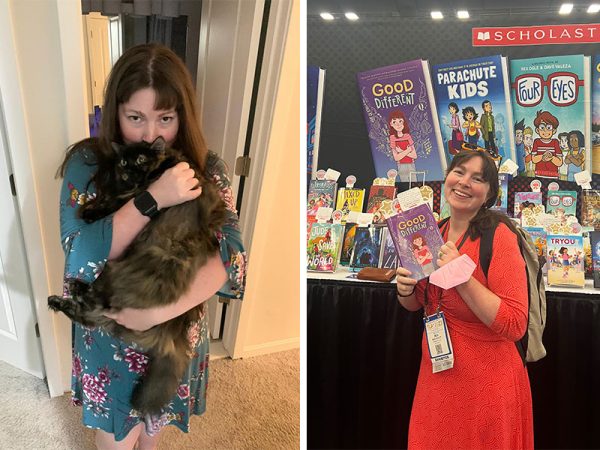
Could you talk about some of the ways your passion for video games has influenced your writing and you as a person?
Video games teach me craft from a different angle. Video games are more direct in letting us interact with objects and actively make choices in a situation. They challenge me to think of different ways to tell my stories. Video games also teach me personally to accept my limitations and be kind to myself—both the literal games and the gaming community, particularly MAGFest. Games like Fire Emblem teach me resource management—I literally cannot do it all (none of us can)! Right now, I’m playing Into the Breach, which challenges my obsessive-compulsive tendencies. Sometimes you can’t go back and make everything perfect. Sometimes you make a mistake but must keep going forward. It’s very uncomfortable for me, but that also means I’m growing.
Video games teach me craft from a different angle. … They challenge me to think of different ways to tell my stories.”
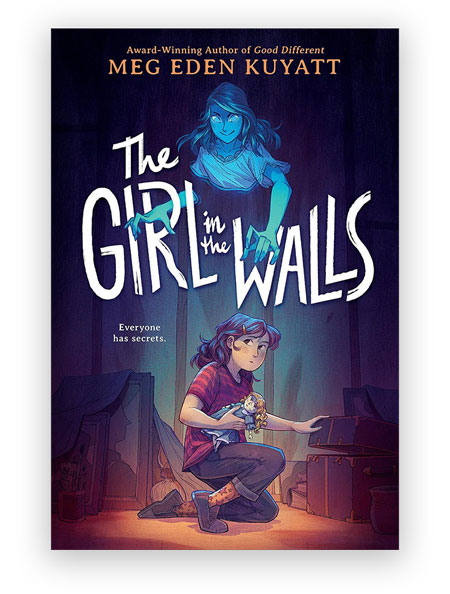
What would you like to share with your fans about your forthcoming books?
My sophomore middle grade novel-in-verse, The Girl in the Walls, comes out in 2025! It also has a female autistic protagonist and deals with intergenerational neurodivergence a little more directly and deeply than Good Different. But it has a speculative twist—the protagonist, V, finds a ghost girl in her grandmother’s walls, but through doing pranks on her grandmother with the ghost, V learns how to love and come to terms with the messy, complicated people in her life.
What are the best ways for educators and librarians to connect with you or to follow you on social media?
The best way to connect with me directly is on my website, www.megedenbooks.com, as I’m continually trying to reduce my social media usage. If you’re ever interested in discussing author visits or requesting advanced review copies of forthcoming books, please feel free to reach out! You can also find me at:
Twitter: @ConfusedNarwhal
Instagram: @meden_author
Facebook: Meg Eden Writes Poems
For classroom and writing resources to accompany Good Different, be sure to visit: https://www.megedenbooks.com/good-different-classroom-resources.



